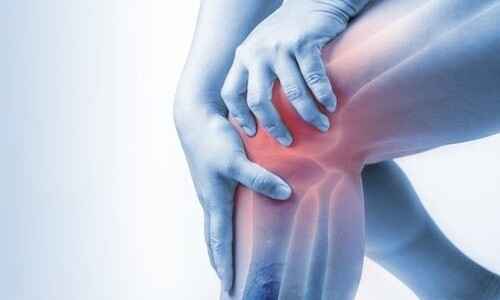Comprehensive Guide for Knee Arthritis
Comprehensive Guide for Knee Arthritis

What is Knee Arthritis?
Knee arthritis, also known as osteoarthritis of the knee, is a degenerative joint disease that affects the knee joint. It occurs when the protective cartilage that cushions the ends of the bones in the knee wears down over time, leading to pain, stiffness, and reduced mobility.
Who gets Knee Arthritis?
Knee arthritis can affect people of all ages, but it is more commonly observed in individuals over the age of 50. Factors such as genetics, obesity, previous knee injuries, and repetitive stress on the knee joint can increase the risk of developing this condition.
Symptoms of Knee Arthritis?
The symptoms of knee arthritis can vary from person to person, but some common signs include:
- Persistent pain in the knee, especially during weight-bearing activities or after prolonged periods of inactivity.
- Swelling and tenderness around the knee joint.
- Stiffness and reduced range of motion in the knee.
- A grating sensation or popping sounds when moving the knee.
- Muscle weakness or instability in the knee joint.
Risks and Complications of Knee Arthritis? Why is it important to prevent it soon?
If left untreated, knee arthritis can lead to several complications and negatively impact one's quality of life. Some risks and complications associated with knee arthritis include:
- Increased pain and stiffness over time, making it difficult to perform daily activities.
- Loss of muscle strength and flexibility around the knee joint.
- Development of bone spurs, which can further worsen pain and limit mobility.
- Joint deformity and instability.
- Decreased ability to participate in physical activities, leading to a sedentary lifestyle and potential weight gain.
- The potential need for invasive surgical interventions in severe cases.
It is crucial to prevent and manage knee arthritis as early as possible to mitigate these risks and complications. Effective prevention measures may include maintaining a healthy weight, engaging in regular exercise, avoiding repetitive stress on the knee joint, and promptly treating any knee injuries or conditions that may contribute to the development of arthritis.
Who treats Knee Arthritis?
Knee arthritis is typically managed by healthcare professionals specializing in orthopedics, such as orthopedic doctors and knee specialists. These experts have extensive knowledge and experience in diagnosing and treating various knee conditions, including arthritis. Seeking timely and appropriate medical assistance from these professionals can significantly improve the outcomes for individuals with knee arthritis.
Diagnosis of Knee Arthritis?
To diagnose knee arthritis, a medical professional will conduct a comprehensive evaluation, which may include:
- A thorough physical examination of the knee, checking for pain, swelling, and range of motion.
- A review of the patient's medical history, including any previous knee injuries or conditions.
- Imaging tests such as X-rays, MRI scans, or CT scans to assess the extent of joint damage and confirm the presence of arthritis.
- Joint fluid analysis, where a sample of fluid from the knee joint may be examined for signs of inflammation and other underlying conditions.
Treatment Options for Knee Arthritis?
The treatment options for knee arthritis aim to relieve pain, improve joint function, and enhance the individual's overall quality of life. Some common non-surgical treatment options include:
- Medications: Over-the-counter pain relievers, nonsteroidal anti-inflammatory drugs (NSAIDs), and corticosteroid injections can help manage pain and reduce inflammation.
- Physical Therapy: Targeted exercises and physical therapy sessions can strengthen the muscles around the knee joint, improve flexibility, and alleviate symptoms.
- Assistive Devices: The use of assistive devices like braces, orthotics, or walking aids may provide support and reduce the load on the knee joint.
- Lifestyle Modifications: Adopting a healthy lifestyle, including weight management, low-impact exercises, and avoiding activities that aggravate knee pain, can effectively manage symptoms.
Surgical Treatment for Knee Arthritis
In cases where non-surgical treatments do not provide adequate relief, surgical interventions may be considered. Some common surgical options for knee arthritis include:
- Arthroscopy: A minimally invasive procedure in which a thin, flexible tube with a camera is inserted into the knee joint to remove damaged cartilage or repair joint surfaces.
- Partial Knee Replacement: This procedure involves replacing only the affected part of the knee joint with artificial components, preserving healthy bone and ligaments.
- Total Knee Replacement: This surgery replaces the entire knee joint with an artificial joint, relieving pain and restoring function in severely damaged knees.
Contact Dr. Nataraj H M - One of the Best Orthopedic Doctors and Knee & Shoulder Specialists in Bangalore
Dr. Nataraj H M is a highly accomplished orthopedic doctor and knee specialist in Bangalore. With a rich experience of 13 years in orthopedics, Dr. Natraj is renowned for his expertise in treating knee arthritis and other knee-related conditions. His compassionate care, combined with his vast knowledge and advanced treatment techniques, has made him a trusted choice for individuals seeking effective management of knee arthritis.
Why Choose Dr. Natraj for Knee Arthritis?
Choosing Dr. Nataraj H M for knee arthritis can offer several benefits, including:
- Extensive Experience: With 13 years of experience, Dr. Natraj has gained in-depth knowledge and expertise in orthopedic care, specifically in the management of knee arthritis.
- Personalized Treatment: Customizing treatment plans based on each patient's unique needs, ensuring the best possible outcomes for knee arthritis management.
- Advanced Techniques: With the latest advancements in orthopedic care and utilizes cutting-edge techniques to provide superior treatment options for knee arthritis.
- Compassionate Care: Warm and friendly approach creates a comfortable environment for patients, fostering trust and promoting overall well-being.
- Well-Equipped Facility: With the state-of-the-art facility that is equipped with modern technology and facilities to support accurate diagnosis and effective treatment.
In conclusion, knee arthritis is a degenerative joint disease that requires timely intervention and effective management. By understanding the causes, symptoms, and available treatment options, individuals can make informed decisions to prevent, diagnose, and treat knee arthritis, improving their quality of life and preserving knee joint health. Seeking the expertise of professionals like Dr. Nataraj H M can provide valuable guidance and comprehensive care in managing knee arthritis effectively.


